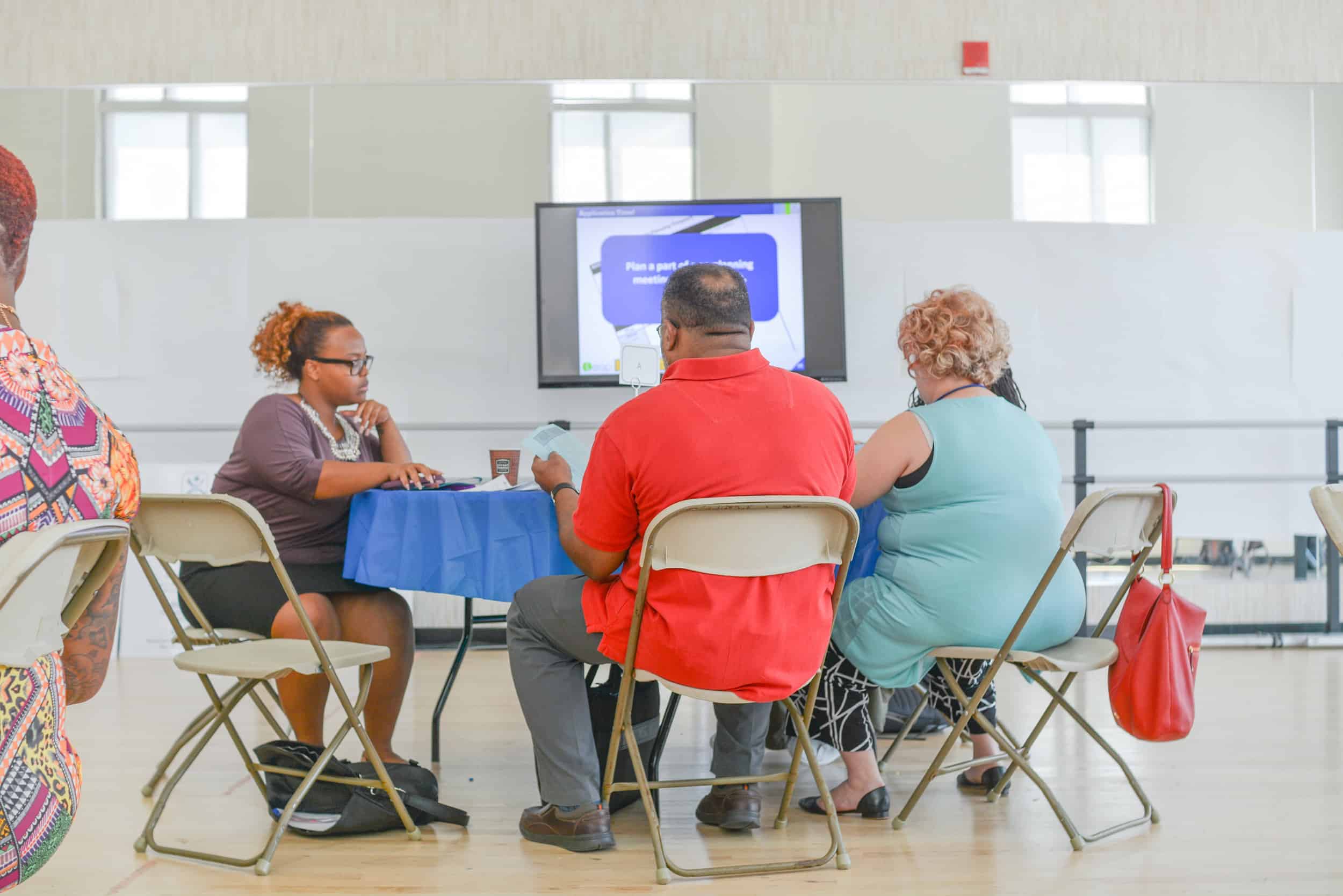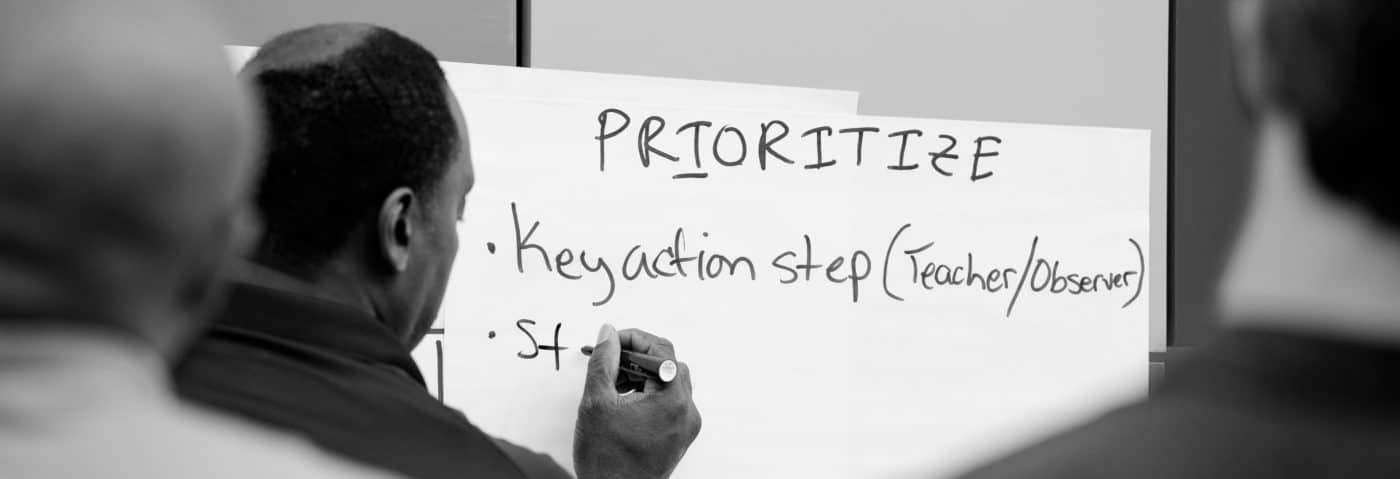
Case Study : DC Public Schools
How did one of the most heavily-watched districts in the country improve outcomes for 49,000 students for four straight years?
LEAP, a first-of-its-kind effort to provide teachers with collaborative planning and practice every week, raised the bar for teacher support. This case explores how we helped leaders at DC Public Schools build upon a decade of human capital reforms and instructional initiatives to scale a groundbreaking professional learning system.
The Power of Partnership
When the District of Columbia Public Schools (DCPS) and Leading Educators launched LEAP (LEarning together to Advance our Practice) in 2016, many saw the potential for a paradigm shift in professional learning. No system had ever pursued such broad and deep support for strong teaching and learning.
Within a year, LEAP was at scale, providing weekly collaborative planning and practice with quality curricula across 116 schools. Three years later, students at all grade levels were reaching significant growth, and instructional culture was flourishing.
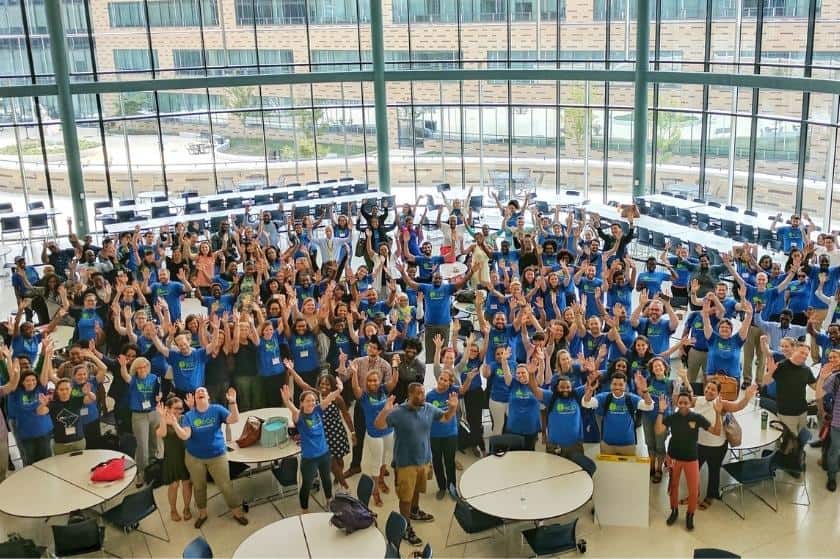
Leading Educators first partnered with DCPS in 2012, accelerating a successful teaching and learning transformation. LEAP followed a series of influential reform efforts that established a strong teaching force, set expectations for what students would learn, and committed the district to developing broad leadership.
DCPS adopted the Common Core State Standards, which set higher expectations for students, and began to provide some subject-specific learning to help teachers adapt. Teachers participated in large-group PD sessions held five times a year in central locations, supplemented by support from the districts’ network of instructional coaches. Classroom observations showed this wasn’t enough to shift teaching practice in the ways demanded by the standards.
The district started working with Leading Educators in 2012 to design effective roles for teacher leaders as part of a $62 million, five-year federal Teacher Incentive Fund grant. The Teacher Leader Innovation project worked with principals to use teacher leaders’ strengths to address the most pressing priorities in their schools. The project began with seven schools in 2013-14, expanding to 21 schools in 2014-15 and 29 schools in 2015-16. Evaluation of the first year, indicated that the most effective roles focused on subject-specific pedagogy and content-specific, individualized coaching for teachers.
DCPS did not have a single, rigorous math curriculum, and teachers were eager to implement this change. The district decided to pilot Eureka Math in a subset of schools, providing materials and training. Based on positive feedback from teachers and PARCC gains among students in the pilot schools, leaders decided to adopt the curriculum systemwide. They knew that teachers would find it challenging to use the new curriculum without a different type of professional learning for teachers.
DCPS and Leading Educators launched the LEAP program across 116 schools, creating the potential for systemic change. LEAP draws from research that teachers improve with frequent access to school-embedded learning connected to quality curricular materials. School principals, assistant principals, instructional coaches, teacher leaders, and department chairs who would run weekly LEAP seminars and coaching in schools received intensive early support throughout the program launch.
The first year was significant for establishing expectations, bringing teachers into an iterative process for professional learning, and gathering information about implementation. Foundationals content learning allowed LEAP teams to more deeply interrogate their curricula and lessons, and DCPS worked with LE to expand the learning modules available in core content areas. Early data indicated that schools that implemented LEAP with the greatest fidelity also saw greater gains in student achievement, so schools that needed more support were prioritized for coaching and co-planning.
Throughout the second year, Leading Educators worked closely with DCPS to build district-level capacity and institutional knowledge for design, implementation, and continuous improvement of LEAP. Leaders from the Office of Instructional Practice largely owned the scope of learning, LEAP Leader supports, and new design with LE supporting progress monitoring and knowledge management. By fall of 2018, LE transitioned fully from the partnership.
LEAP has continued to evolve to support a deepening set of instructional priorities rooted in equity.
The LEAP Model
LEAP was created with a vision to help teachers grow as experts so every student across Washington, D.C. is challenged and supported to learn to their full potential. Behind excellent teaching is exceptional development and continuous practice, to LEAP gives teachers weekly opportunities to learn in content-specific teams.
The Guiding Principles
- LEAP is content-specific. Deep knowledge of content pedagogy – for example, knowing why a math algorithm works and being able to understand why a student makes a mistake – is more essential than ever to providing responsive and grade-appropriate teaching. Thus, teachers need opportunities to grasp content and apply it well in their classroom.
- LEAP is school-based. Schools are vehicles for community change. DCPS believes development has to take place at school where teachers can make changes in real time. LEAP is designed to be tailored to schools, teachers, and their students.
- LEAP is an adult-learning curriculum. Instructional leaders shouldn’t have to figure out how to support teachers all on their own, especially when there is a wealth of evidence about what works. LEAP provides leaders with research-backed resources they can adopt and adapt to meet the needs of their teachers.
The Process
LEAP modules–or units of study–follow a cycle of continuous improvement.
- Examine Data: Teachers study what students need to know and be able to do and what the data indicate about the school’s progress. Teams disaggregate data by various demographic factors when possible to pay special attention to opportunity gaps.
- Set Goals: Teachers set goals for students based on the growth areas revealed by data analysis. LEAP teams also set teacher practice goals to ensure that their learning aligns to goals for students.
- Learn Individually and Collaboratively: Educators build pedagogical knowledge to be prepared to help students reach their goals.
- Apply New Learning: Teachers take what they have learned and apply it in their classrooms. LEAP Leaders support teachers with observations so they have access to timely, useful feedback.
- Monitor and Refine: Teachers reflect on the outcomes of trying new strategies. Teachers meet individually with a LEAP Leader to review evidence and then prioritize action steps before the next cycle.
To support leaders at all levels, LE and DCPS provided a mix of the following activities based on individual school needs.
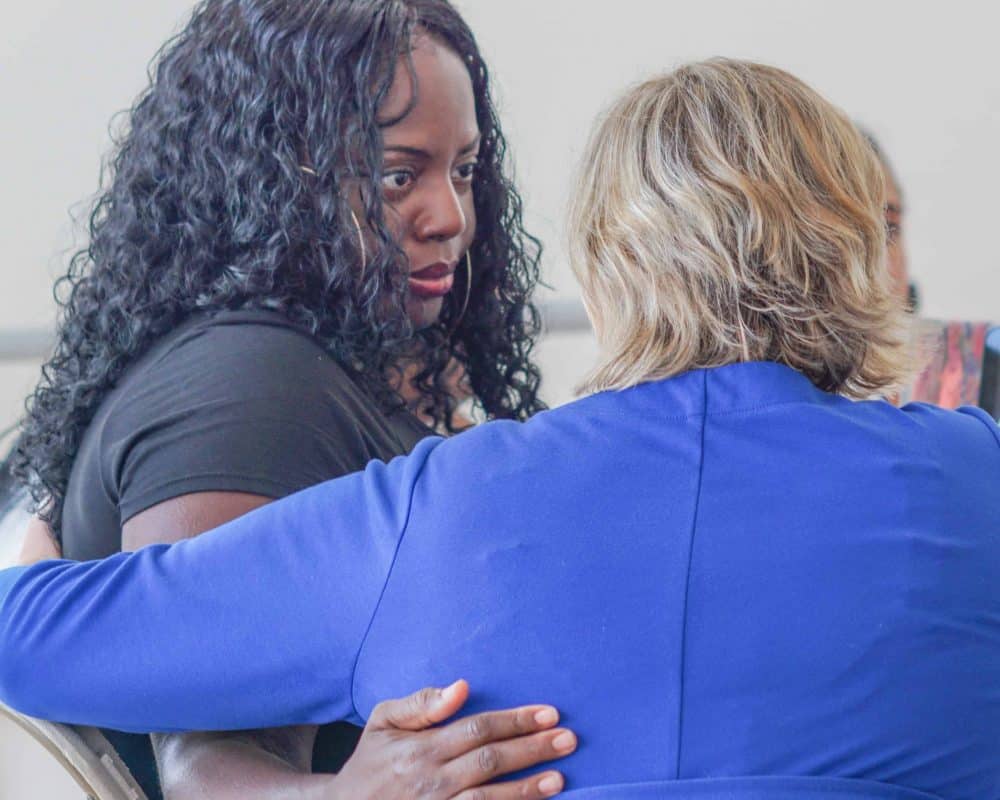
Leadership coaches visited LEAP Leaders to provide personalized development in targeted areas 4-6 times per academic term.

Leadership coaches met with principals each month to support leadership of LEAP implementation.
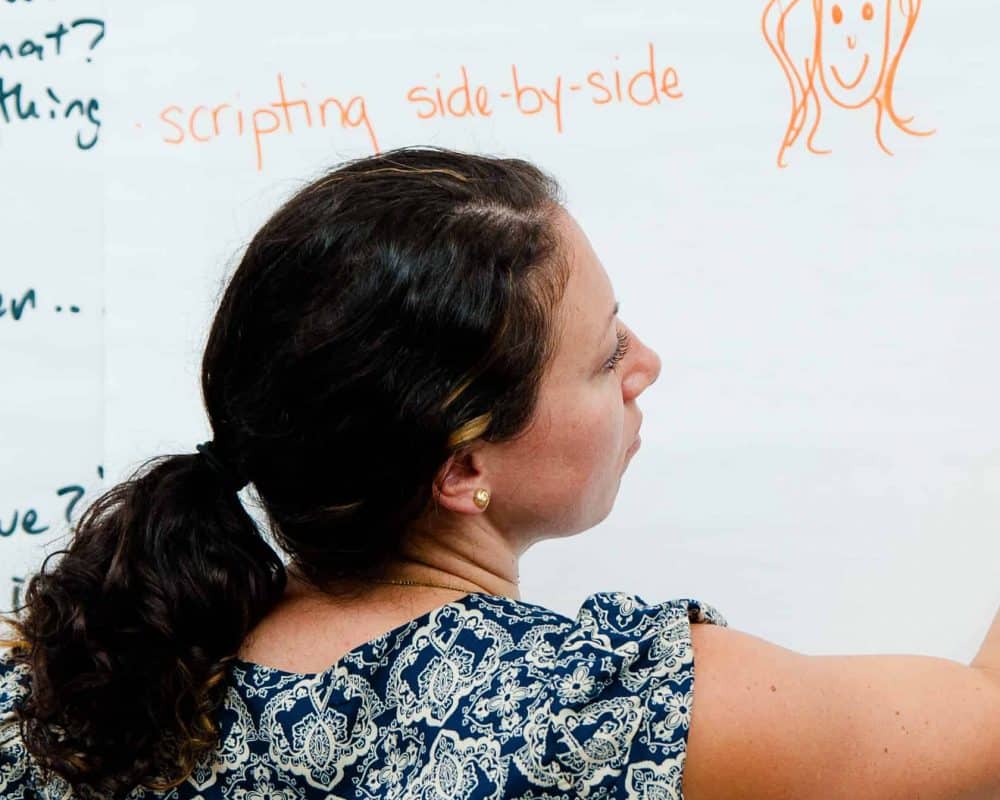
Principals, LEAP Leaders, and leadership coaches met quarterly in schools to monitor progress against their school theory of action. Coaches worked to strengthen capacity to analyze data, particularly teacher practice data; set student, teacher, and leader goals; and make adjustments.

Leadership coaches sent principals and instructional superintendents monthly communications about priorities and outcomes from LEAP leadership coaching.
Lasting Impact
Since partnering with Leading Educators, DC Public Schools has seen significant gains in ELA and Math proficiency for four consecutive years.

116 Schools supported
to implement curriculum-based learning cycles

55% more students
ready for college and career in ELA since 2015

48% more students
ready for college and career in math since 2015
Learning cycles focused on quality instructional materials and high expectations for students improve how teachers teach.
Bringing to life a strong instructional vision that centers high-quality curricula and equity is complex and requires intensive support for educators.
Collaboration with external support providers can accelerate alignment of an instructional vision throughout a system.
A plan for intentional scaling and intentional development of leaders throughout a system is essential for success.
Download: Igniting Capacity for Systemic Equity
The Path to Instructional Excellence and Equitable Outcomes, written in partnership with Learning Forward, details DC Public Schools’ path to launching groundbreaking professional learning efforts with our support that are revolutionizing expectations for the change that teacher support can accomplish.
